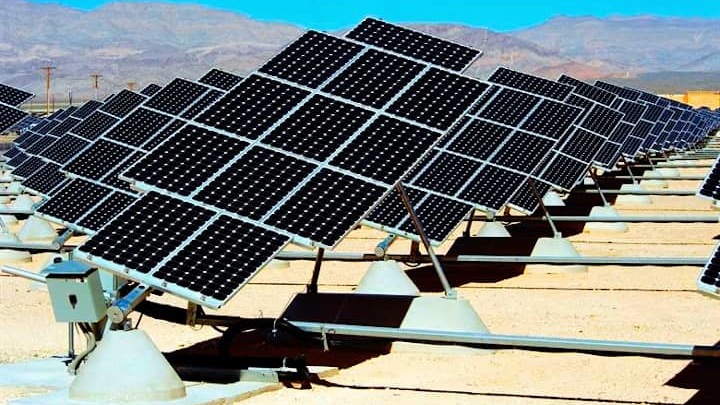Solar alarm clocks just might be technology from the future! We all need alarm clocks in our homes to wake us up in the morning, or in our offices to set reminders for specific times. However, there is always a tendency for the batteries in our regular alarm clocks to die at the most in opportune time, leaving us running late without any warning. Like solar powered phone cases that can charge your phone, solar alarm clocks provide a long-lasting, environmentally friendly solution to these problems and will keep you running on time no matter what.
If you’re skeptical about purchasing a solar alarm clock do not worry. In my experience, it is probably because you do not know too much about solar alarm clocks. This article will give you all the information you need about how solar alarm clocks work, which clocks work the best, how long their batteries last, and what you should look for in a solar alarm clock. Keep reading to find out more.
How Do Solar Alarm Clocks Work?
Solar alarm clocks work the same way battery-powered devices work, with the exception that their energy is gotten from the sun. Hence, they work with the same principle as solar watches, solar panels, and other solar powered devices. Solar panels, (like the ones in solar powered alarm clocks) contain a solar cell that transforms light from the sun and other sources of illumination into electrical energy.
Once the solar cell is turned towards sunlight it absorbs converts the energy into electrical energy. This is used to run the clock, and is stored in a rechargeable battery for later use. The rechargeable cell is usually a secondary cell or an AA battery in the alarm clock that is put in for that purpose. The clock then draws power from the rechargeable cell for the movement of its hands.
Some solar alarm clocks, such as the TFA Radio-controlled solar alarm clock, don’t need you to set the time because the time is set automatically by the radio control, which is always accurate. It also updates the time on the clock whenever it goes forward or backward.
How Well Do Solar Alarm Clocks Work?
In the old days solar clocks worked by using the timing of the sun to create a shadow revealing what time in the day it was. These days solar technology has of course improved dramatically and solar clocks now harness the power of the sun to run their electrical components. Alarm clocks running on solar power work in the same way as a regular alarm clock.
However, the one difference is that the batteries of a regular alarm clock can stop working once the batteries die, while the batteries of a solar alarm clock will keep working as long as the sun shines, literally. Some of the clocks can even charge using artificial illumination. So you never have to worry about replacing the batteries often as long as the clock’s dial is exposed to light.

What Are the Best Solar Powered Alarm Clocks?
Solar alarm clocks come in various designs with different features from which you can choose. However, if you’re a first-time user, you might find it a little tasking trying to figure out which ones to buy. To make the decision easier for you, we’re providing you with a list of some of the best solar alarm clocks. These include:
- TFA 98.1071 Radio-Controlled Solar-Powered Alarm Clock
- Acctim 14193 Eclipse Solar Dual Power Alarm Clock
- MIR Solar Powered Alarm Clock
- Lifemax Solar Clock 1436C
- UTS Radio Solar Alarm Clock
- Quantys Solar Alarm Clock
- +ECO Solar Weather Clock
- Seiko Solar Alarm Clock
- Simple Solar Alarm Clock
- Argus Solar Alarm Clock
Here at SolarSena we do out best to provide you with informative articles rather than product reviews. However, we believe the ten solar alarm clocks mentioned above are some of the best on the market today.
How Long Does the Battery Last and How Often Do They Need to Be Charged?
The batteries of a solar alarm clock aren’t like ordinary batteries in your regular alarm clocks. Solar alarm clocks use secondary cells that can recharge after use. However, you don’t need to worry about how long the battery of your alarm clock will last because it’s continuously being recharged.
Nevertheless, high-quality solar alarm clocks with good batteries can last up to 30 or 40 years without giving you any trouble, provided they’re constantly being exposed to light. They would last you about a year or two without constant charging.
However, low-quality solar alarm clocks can last you just about 20 years with constant exposure to light. And just a few months without charging. But it’s advisable to charge your clocks for a few hours at least once every month to prevent the battery from damaging.
How Much Does the Average Solar Alarm Clock Cost?
Good solar clocks can cost anywhere between $50 to $300. The difference in prices depends on what extra features come with the solar clock, such as the design, temperature display, FM radio, ability to read the weather and humidity, LED backlight, speaker, etc
For example, the Seiko solar alarm clock costs a whopping $310, which is justified by the CR2032 battery it’s built with and the fact that it’s the thinnest solar clock on the market. The Argus solar alarm clock, on the other hand, sells for just about $11 with four solar panels and an LCD screen.
While the +Eco solar weather alarm clock is priced at $70, it comes with a variety of exciting features like reading the weather, the ability to display temperature, etc. So, depending on your budget, there’s a solar alarm clock that’s perfect for you.
Pros and Cons of Buying a Solar Alarm Clock vs. Using Your Phone or Normal Alarm
You might be wondering if there are any significant differences between a solar alarm clock, a regular alarm, and using your phone to set the alarm. After all, they all get the job done. However, there are significant advantages to using a solar alarm clock instead of a regular one or your phone.
The first is that you don’t ever have to worry about consistent battery changes with a solar alarm clock, unlike regular alarms that require battery replacements every few months. It also helps keep the environment clean because you don’t have to throw out batteries now and then like you do with regular alarm clocks, as a solar alarm battery can last up to 40 years.
Finally, the degree of accuracy of a solar clock is so high that you don’t have to set the time when you eventually take out the batteries. However, you have to set the time on a regular alarm clock every time you put in new batteries.
Conclusion
With the planet’s safety at the back of everyone’s mind, there’s nothing as comforting as knowing that you can start your day with an alarm that’s good for your environment when you wake up in the morning. In this article, we’ve provided a background for you to make an informed decision when next you’re shopping for an alarm clock.



